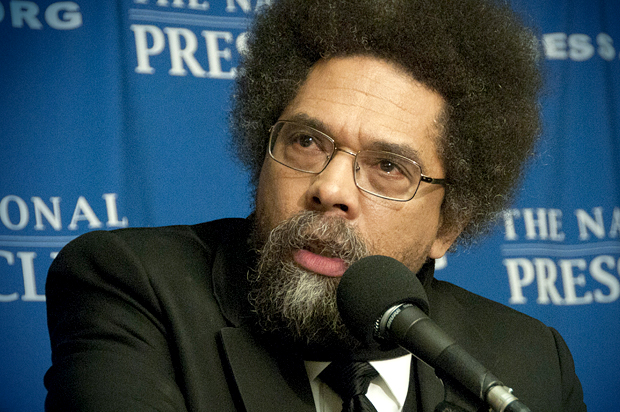September 29, 2014
1. Stealing oil from Native Americans. In 1989, investigators told a congressional panel that Koch Industries regularly ended its year with far more barrels of oil than it had paid for. The oil was stolen from Indian lands. All in all, the Kochs made out with a total of $31 million worth of oil that wasn't paid for over three years, according to the Associated Press. The Kochs would eventually pay the U.S. government $25 million to settle the case in 2001.
2. Covering up faulty pipelines. In 1994, a pipeline in South Texas built in the 1940's exploded, spewing more than 90,000 gallons of crude oil into Gum Hollow Creek. Employees had warned Koch Industries that the pipeline had serious issues but to no avail. The spill would eventually reach six states. Koch Industries was sued for violating the Clean Water Act and forced to pay a $30 million civil penalty, at the time the biggest in the history of U.S. environmental law. Carol Browner, the former EPA administrator, said of Koch Industries, "They simply did not believe the law applied to them."
3. Treating the Mississippi River like a toilet. Koch's Pine Bend refinery in Minnesota spilled some 600,000 gallons of jet fuel into wetlands near the Mississippi River through much of the 1990s. It even increased its discharges over the weekends, as it knew it wasn't being monitored. Koch Petroleum Group pleaded guilty to "negligent discharge of a harmful quantity of oil." It also admitted to violating the Clean Water Act and was ordered to pay a $6 million fine and $2 million in remediation costs.
4. Treating the air we breath like an ashtray. Koch was accused of violating the Clean Air Act in 2000, when the feds hit the company with a 97-count indictment for "venting massive quantities of benzene at a refinery in Corpus Christi" and then attempting to cover it up. At first, Koch claimed it released 0.61 metric tons of benzene for 1995, just one 10th of what was allowed under the law. But the feds argued that Koch was told of its true emissions that year: 91 metric tons, or 15 times the legal limit. The Koch brothers worked their magic, pleaded guilty to a single felony count and avoided criminal prosecution. Koch also paid $20 million in fines and reparations.
5. Profits over public safety. On Aug. 24, 1996, near Lively, Texas, Danielle Smalley and her friend Jason Stone were burned to death after a decrepit Koch pipeline exploded after the teens started the ignition of their truck. The feds documented "severe corrosion" and "mechanical damage" in the pipeline. Koch Pipeline Company LP failed to "adequately protect its pipeline from corrosion," a National Transportation Safety Board report would state. After a lengthy trial, Koch Industries was ordered to pay the Smalley family $296 million, then the largest wrongful-death judgment in American legal history. The family would later settle with Koch for an undisclosed sum.
6. Pulling strings in the White House. George
W. Bush's campaign benefitted handsomely from Koch money and he repaid
the brothers by appointing Susan Dudley, an anti-regulatory academic who
hailed from the Koch-funded Mercatus Center at George Mason University,
as its head regulatory official. Of course, Koch became the second
coming of Sierra Club--according to them. Koch points to awards it has
received for "safety and environmental excellence." "Koch companies have
a strong record of compliance," Koch's top lawyer told Rolling Stone.
"In the distant past, when we failed to meet these standards, we took
steps to ensure that we were building a culture of 10,000 percent
compliance, with 100 percent of our employees complying 100 percent."
7. Doing business with Iran when U.S. companies weren't supposed to. American companies aren't supposed to do business with the Ayatollahs, but Koch Industries took advantage of a loophole in the 1996 sanctions. Basically, the loophole made it possible for foreign subsidiaries of U.S. companies to do a certain amount of business with Iran.
And the rest is history:
In the ensuing years, according to Bloomberg Markets, the German and Italian arms of Koch-Glitsch, a Koch subsidiary that makes equipment for oil fields and refineries, won lucrative contracts to supply Iran's Zagros plant, the largest methanol plant in the world.
And thanks in part to Koch, methanol is now one of Iran's leading non-oil exports.
"Every single chance they had to do business with Iran, or anyone else, they did," said Koch whistle-blower George Bentu. Having signed on to work for a company that lists "integrity" as its top value, Bentu added, "You feel totally betrayed. Everything Koch stood for was a lie."
Koch reportedly kept trading with Tehran until 2007 – after the regime was exposed for supplying IEDs to Iraqi insurgents killing U.S. troops. According to lawyer Holden, Koch has since "decided that none of its subsidiaries would engage in trade involving Iran, even where such trade is permissible under U.S. law."8. Their father did business with Stalin. Fred Koch, father of David and Charles, partnered with engineer Lewis Winkler to form Winkler-Koch Engineering Co. One of its major contracts was with the USSR, where Joseph Stalin was starving a large portion of his population. Their competitors were reluctant to do business with the tyrant, but Winkler-Koch Engineering Co. lacked any such qualms.
Between 1929 and 1931, Winkler-Koch built 15 cracking units for the Soviets. Although Stalin's evil was no secret, it wasn't until Fred visited the Soviet Union, that these dealings seemed to affect his conscience. "I went to the USSR in 1930 and found it a land of hunger, misery and terror," he would later write. Even so, he agreed to give the Soviets the engineering know-how they would need to keep building more.There is more to the Koch brothers' shady, destructive business practices. Check out the Rolling Stone feature.
















